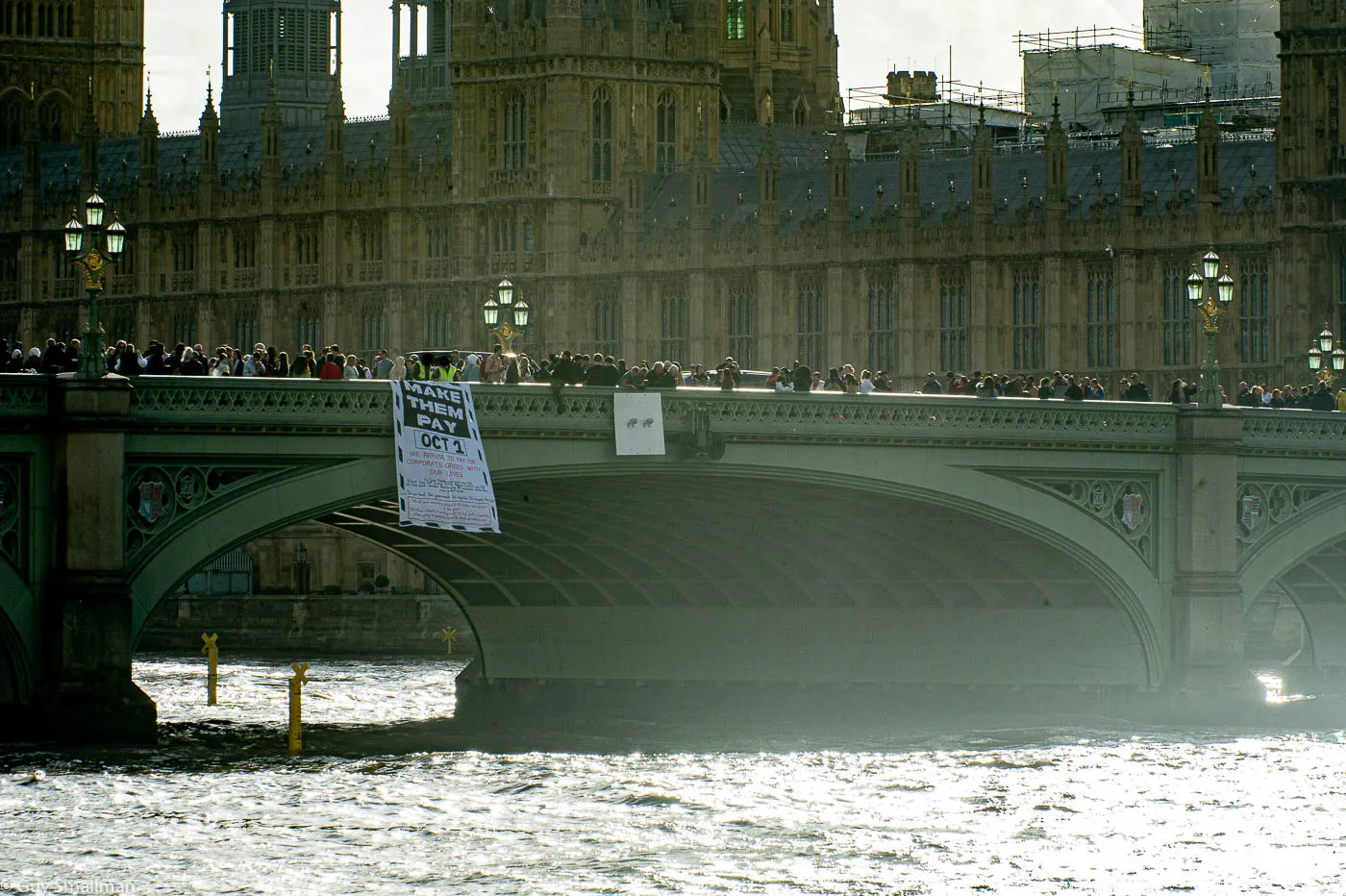Don’t pay UK?
Make them pay!
With all this talk about not paying in the press, the lack of clarity on what that entails has been surprising. This short survival manual was originally written by comrades from ra-t.org
With soaring utility costs and a government hellbent on guaranteeing energy profits it’s become apparent that not enough is being done to keep people resilient and autonomous.
This short manual includes experience from squatters and eviction resisters, the front liners of empty threats from authoritarians and profiteers, armed with a healthy knowledge of the law and all the confidence to say so!
The contemptuous policy platforms of this government in tandem with intensifying climate change mean that this winter is going to be rougher than ever for an increasing amount of the population.
It’s our hope that these guides will help you to empower yourself and your community, to provide access to the resources you deserve and show solidarity in making them available to others!
How not to pay
Refusing to pay is not only a great way of saving money, but also an act of civil disobedience. The cost-of-living crisis could have been avoided by those who govern us. It very much hasn’t been, and they intend to make us pay for it. Why remain calm while we are being robbed for their incompetence and corruption? Make them pay!
However, refusing to pay is not that easy. There can be consequences: fines, even prosecution. These are aimed at deterring a great number of people from not paying. It is psychological warfare. If we want to stop paying undue costs as an act of civil disobedience, it is important to raise psychological defences.
How likely you might be prosecuted?
Debt collectors, energy companies and ‘financial experts’ have warned Don’t Pay UK sympathisers all over the media that the consequences for refusing to pay are a lower credit score, debt build-up, penalties, prosecution, electricity being cut off, repossession of your belongings.
However, it is very rare for things to go that far. You need to build up a crazy debt for them to actually take action. In a Q&A podcast, of which a transcription is available online, Don’t Pay UK campaigners ask legal experts what actually happens in practice. It is way less daunting than you would imagine.
The Q&A is a great measure of what actual risk you are taking, as opposed to what may happen to you according to laws and procedures.
The whole point of Don’t Pay UK is that there is strength in numbers, that they cannot prosecute everyone. But no one has done anything like this since the poll tax protest.
01.
Be sure of yourself
So, yeah, in effect, there is risk. But there is also risk in paying – risk of starving. No one should be forced to choose between heating their house, paying their train fare and eating food. You are being forced into an unbearable situation. Whatever they tell you about not paying, it isn’t as morally wrong as being left to starve and/or freeze.
Remind yourself that no matter what they say, it is your right and your power as a citizen to protest and say no when something unfair is being done to you.
Don’t let them gaslight you into oppression. Be certain in your heart of hearts that they are wrong and what you are doing is right. Not only for yourself, but also for society at large, because if the campaign is successful, fees will be lower for everybody.
Keeping this certainty in your heart will help you face their threats with disdain and anger rather than fear.
02.
Know your rights
After you stop paying, energy companies will try to make contact. You can state your intentions with clarity to them. However, that can be difficult, as most people you will be in contact with will be trying to intimidate you, to scare you into paying. They only see you as a cash machine, they don’t care howmiserable or poor you are.
When in contact with them, they may say misleading things to you. It is not illegal for them to lie to you, or distort facts to make them scarier that they are. (Same goes for the police, actually…)
By experience, standing your ground and reminding people of the law can sometimes be enough for them to change their tune.
03.
Communicate your terms
You might want to talk to them, or not. You might want to hand them a piece of paper with a pre-written statement. However you feel most comfortable, remember that you can set the tone of a conversation. Or walk away from one.
From experience, the best is to give people a minimum amount of information, just in case they decide to use something against you later. It is a good habit and a precaution. You can be both friendly and vague.
04.
Don’t feel alone—organise!
You might escape repression, but you may also wind up having to pay a fine or a penalty, depending on what you decide to stop paying. These things happen. Contacting structures such as the London Renters Union can be a good way to feel supported if you are considering a rent strike.
Establishing a mutual fund (a tontine) with a small group of friends could also be a great way to team up to face fines and fees. By teaming up, you can also set up fundraising activities to help with fees.
In general, facing these things together as a group is encouraging. It isn’t a selfish act, it is an act of resistance, part of a wider movement of people who are fed up and won’t be taken advantage of anymore.

